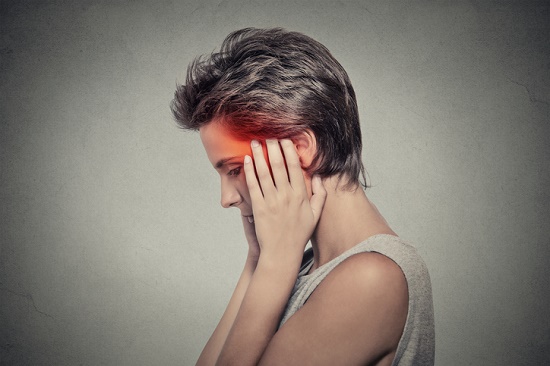
Although it’s true that there is presently no scientifically-proven way to cure tinnitus, researchers are hard at work to uncover one. In the meantime, various tinnitus therapy options exist that can afford considerable relief.
Look at it in this way. If you have a headache, you take Tylenol regardless of the fact that it doesn’t “cure” your headache. Pain relievers simply make the pain diminish into the background so that it doesn’t impact your day. Likewise, tinnitus therapy can help lower the intensity of symptoms so that your tinnitus has negligible impact on your daily routine.
Seeing that everyone reacts to tinnitus in a different way, there’s no one-size-fits-all treatment. You’ll have to work with your provider to discover the option that works best for you.
Here are some of those options.
Tinnitus Treatment Solutions
If you suffer from tinnitus, you’ll want to review the following treatment options with your hearing care or healthcare provider.
Treatment of the underlying problem
Although the majority of instances of tinnitus are not curable—and are a consequence of hearing loss or other non-reversible damage—certain cases are brought on by an underlying physical condition. You’ll want to rule these out before seeking other treatment options.
Possible physical causes of tinnitus include jaw joint problems (temporomandibular joint, or TMJ dysfunction), too much earwax or any other obstructions in the ear canal, head and neck injuries, and responses to select medications.
General Well-Being
The seriousness of tinnitus symptoms can vary depending on overall health. Taking actions to boost general well-being is, consequently, something tinnitus patients can get started on immediately to reduce the level of intensity of symptoms.
Each person is unique, and what works for someone else might not work for you. The purpose is to try out a variety of activities to find out what is most effective.
Activities that have revealed promise include instituting a healthy diet, getting plenty of physical exercise, meditating, and participating in activities like bicycling, which can conceal the sounds of tinnitus.
Hearing Aids
Tinnitus is often connected to hearing loss and hearing injury. In response to decreased stimulation from outside sound, the brain undergoes maladaptive changes that bring about the perception of tinnitus.
By increasing the amount of environmental sound, hearing aids can help mask the tinnitus, making the sounds of tinnitus less perceptible. Hearing aids additionally provide enhanced sound stimulation to the brain, which is thought to be neurologically favorable.
Sound Therapies
Sound therapy is essentially the delivery of sound in the form of white noise, pink noise, or nature sounds to minimize the perceived burden or intensity of tinnitus.
Sound therapy operates by covering up the tinnitus and also by teaching the brain to recategorize the sounds of tinnitus as insignificant. This double effect can lessen the short and long-term intensity of tinnitus.
Sound therapy can be delivered through special tabletop devices, but also through portable media devices and even through hearing aids. Medical-quality sound therapy incorporates custom sounds that match the pitch of the individual’s tinnitus for optimal outcomes.
Behavioral Therapy
Bear in mind that tinnitus is the perception of sound in the brain when no external sound is present. The ailment is, for that reason, very subjective, and each person reacts a unique way.
In fact, whether or not the individual perceives tinnitus as life-altering or as no-big-deal is predominantly due to psychological reactions and not to the loudness or pitch of the tinnitus. That’s why cognitive/behavioral solutions to tinnitus therapy have been proven to be very effective.
A number of techniques exist, including Mindfulness-Based-Stress-Reduction (MBSR) and Tinnitus-Retraining-Therapy (TRT), which combines cognitive-behavioral-therapy with sound therapy.
Drug Therapy
Even though there are no current FDA-approved medications for tinnitus, antianxiety and antidepressant prescriptions are regularly used to manage the behavioral responses to tinnitus. These drugs do not appear to influence tinnitus itself, but may offer much-needed relief if thought necessary by your physician.
Experimental Therapy
The search for a tinnitus cure is continuous. Several experimental therapies are in development or evaluation and new methods become available each year. If your tinnitus is significant, and you’ve experienced little benefit from existing therapies, you may be a candidate for one of these leading edge treatment options.
Visit the Experimental Therapies page at the American Tinnitus Association website for more details.
Obtain Relief For Your Tinnitus
Tinnitus is being aggressively investigated, with brand new findings and potential treatment options introduced every year. Even today, there are a variety of promising treatments that, while not supplying a cure, can supply considerable relief. You owe it to yourself to consider these options, remain positive and persistent in your tinnitus care, and work together with your provider to adjust your treatment plan for the best results.






